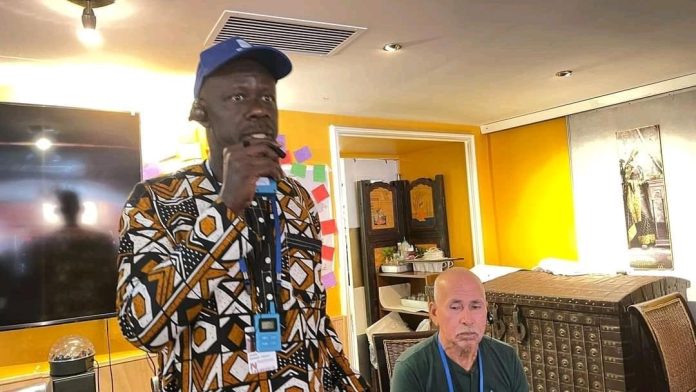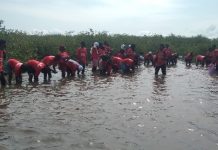By Madiba Singhateh
The Third United Nations Ocean Conference has made a resounding call for countries to strengthen the protection of Marine Protected Areas (MPAs) and safeguard coastal communities and the ocean at large.
The forum, held from 9–13 June 2025 in the city of Nice, France, calls for sustainable coastal management to enhance the lives and livelihoods of residents and other aquatic animals.
French President Emmanuel Macron, speaking at the summit, emphasised the urgency of coordinated global action to preserve marine ecosystems. The conference was convened under the theme: “Accelerating action and mobilising all actors to conserve and sustainably use the ocean.”
Macron noted that the conference marks a pivotal moment in global ocean governance. “Never before has the international community been so mobilised — heads of state, governments, and so many nations all united in talking about the ocean,” he said.
He welcomed the adoption of a new treaty on the high seas, aimed at regulating activities in international waters—those beyond national jurisdictions, which account for two-thirds of the world’s oceans. Until now, these areas had no binding international regulatory framework.
“When we met in Lisbon in 2022, there was no agreed framework for the high seas. For decades, negotiations stalled. But now, as of January 1st next year, the treaty will come into effect,” Macron announced. He noted that at least 60 countries are expected to ratify the agreement by the end of 2025, with 15 ratifications currently underway.
The new treaty is expected to help combat illegal fishing, enforce marine protections, and regulate activities such as deep-sea mining, which threatens fragile marine biodiversity.
Macron also celebrated the creation of new Marine Protected Areas, a joint effort between France and Costa Rica, to support the goal of protecting 30% of global marine areas. “What started with two countries has now grown to a coalition of over 80 nations, thanks in part to the Montreal Biodiversity Conference,” he said.
On the issue of deep-sea mining, Macron warned against its potential risks to biodiversity and climate. He emphasised the importance of protecting the ocean floor, citing its role in storing carbon and its promise for scientific and medical discoveries.
He also highlighted efforts to decarbonise global shipping, revealing that major shipping nations have agreed to slow down shipping speeds and increase the number of electric-powered vessels.
Another major announcement was the formation of a coalition of coastal cities, focused on ensuring coastal populations are not sacrificed in terms of water quality, food, health, and biodiversity.
“We are going to mobilise all coastal communities to adopt practices that reduce pollution and better protect their livelihoods,” Macron said.
He concluded by pledging France’s support to global institutions like the Food and Agriculture Organisation (FAO) and the World Trade Organisation (WTO) in the fight against illegal, unreported, and unregulated (IUU) fishing, including actions against state-subsidised programs that fuel such practices.
Also attending the summit was Gambian marine biologist Dawda Saine, who spoke through CAOPA (the Confederation of African Artisanal Professional Organisations). Saine emphasised the importance of legally enforcing preferential access for small-scale fishers, especially in inshore waters.
“Preferential zones must be co-managed with a focus on conservation and sustainable use,” Saine said, adding that such zones should also contribute to public nutrition. He proposed that part of the fish caught in these zones be allocated to school meals, community food banks, and nutrition programs, thereby linking ocean governance with public health.
“To make this work, states must invest in infrastructure—cold chain units, storage, and transportation—to deliver healthy, nutritious fish to vulnerable populations. It’s good for people, good for biodiversity, and good for the future of coastal communities,” Saine noted.






















